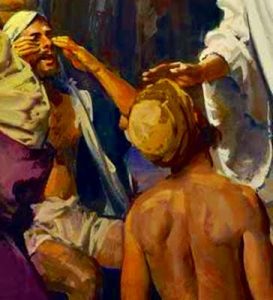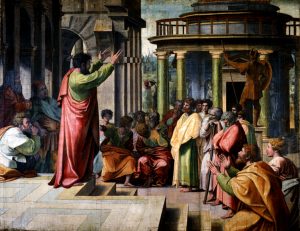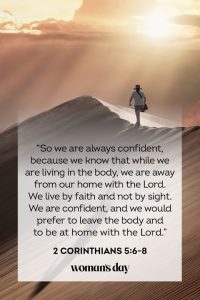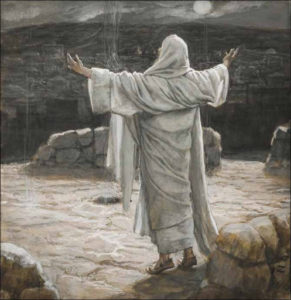F for Faith
To have faith, it is… to believe, you will say.
Of course… but still?
It is to accept a set of propositions on a given topic.
You are right but… only this?
 A short text of the gospel reveals more:
A short text of the gospel reveals more:
“As Jesus went on from there, two blind men followed him, calling out,
‘Have mercy on us, Son of David!’
When he had gone indoors, the blind men came to him, and he asked them,
‘Do you believe that I am able to do this?’
‘Yes, Lord,’ they replied.
Then he touched their eyes and said, ‘According to your faith let it be done to you’;
and their sight was restored” (Matthew 9:27-30).
Jesus’ question was clear: ‘Do you believe that I am able to do this?’
The two blindmen did not proclaim their faith in some formulas.
They did not accept a list of beliefs which they should give their assent to.
They simply replied “Yes” to someone.
They relied on someone – this is faith – to trust someone reliable!
To dare to rely on someone, to dare to surrender to… God.
He who, since long ago, has told us through the prophet Isaiah:
“You are precious in my sight… I love you” (Isaiah 43:4).
A conviction which opens up to a relationship absolutely unique… with God himself.
Daring… to believe it…
Source: Image: https://goodnewsshared.wordpress.com/
 “Go from your country, your people and your father’s household
“Go from your country, your people and your father’s household 

 “The Spirit of God has made his home in you…
“The Spirit of God has made his home in you…
 It is interesting to note that God himself is ready to go along with the ‘credit option’ in our favor!
It is interesting to note that God himself is ready to go along with the ‘credit option’ in our favor!  To me, the first line of today’s 2nd reading (2 Cor.5:6-10) is a perfect example of this.
To me, the first line of today’s 2nd reading (2 Cor.5:6-10) is a perfect example of this. The gospel texts have much for us to learn, to reflect upon, to be inspired and to be challenged by.
The gospel texts have much for us to learn, to reflect upon, to be inspired and to be challenged by.